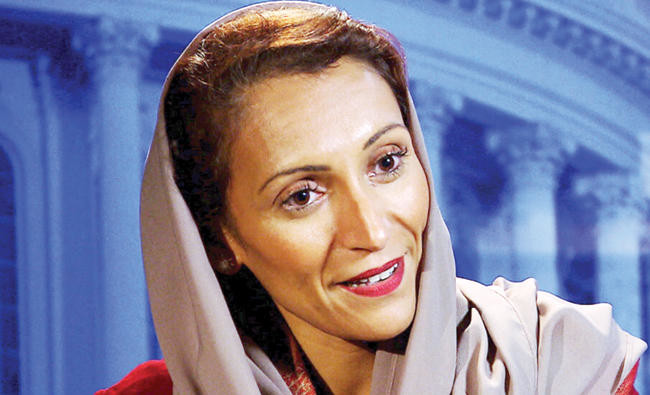WASHINGTON: As Saudi Arabia feverishly portrays itself as ready to join the ranks of modern, tolerant societies, the Kingdom has turned to a once-unlikely messenger — one of its daughters — to make its case to the West.
On Fatimah Baeshen’s first day as the Saudi Embassy in Washington’s official spokeswoman, a royal decree was issued to lift a ban on women driving, starting next summer.
Baeshen, the first woman to hold embassy post, is no stranger to life behind the wheel of a car. The Saudi-born Baeshen spent years living, working and studying in the US, affording an easy fluency in the routines of American life that many Westerners see as irreconcilable with the country she represents.
“I’m a byproduct of the longstanding Saudi-US relationship,” Baeshen said in an Associated Press interview. “For years, Saudi students have been coming to the US to study. There are several Saudis that are like me, that are very comfortable and are able to fluidly go back and forth between cultures.”
For Saudi Arabia, Baeshen’s appointment reflects an opportunity to try to revise a narrative that is sharply at odds with the kingdom’s ambitious plan to transform itself for the future. In addition to sweeping economic changes, “Vision 2030” calls for easing social restrictions as a younger generation prepares to take the helm.
The Kingdom’s economic overhaul also means bringing more Saudi women into the workforce, with an eye toward creating more two-income households and weaning Saudis off of reliance on government perks. The official plan calls for increasing female participation from 22 percent to 30 percent.
“Women across the board deal with different issues, regardless of where they are,” Baeshen told the AP. She said the driving issue shouldn’t obscure the fact that Saudi women have been productive members of society for decades. “The myopic focus of this element I think deters the larger perception of what Saudi women have really been able to contribute.”
After attending the University of Massachusetts, Amherst, she wrote a thesis on Islamic financial regulation in secular markets while a graduate student at the University of Chicago. She worked in the Saudi Ministry of Labor and at the World Bank before joining the embassy.
As a director at the Arabia Foundation, she wrote in Time Magazine earlier this year: “The change-through-confrontation approach is counterproductive to achieving our collective goal; force is too often met with the strongest of cultural resistance.”
“Empowerment is about access, choice and control. Saudi Arabia has made tangible strides in the spheres of access and choice,” Baeshen said. “There are elements to be improved with respect to control.”
A Saudi Arabian first: Spokeswoman at Kingdom’s US Embassy
A Saudi Arabian first: Spokeswoman at Kingdom’s US Embassy














